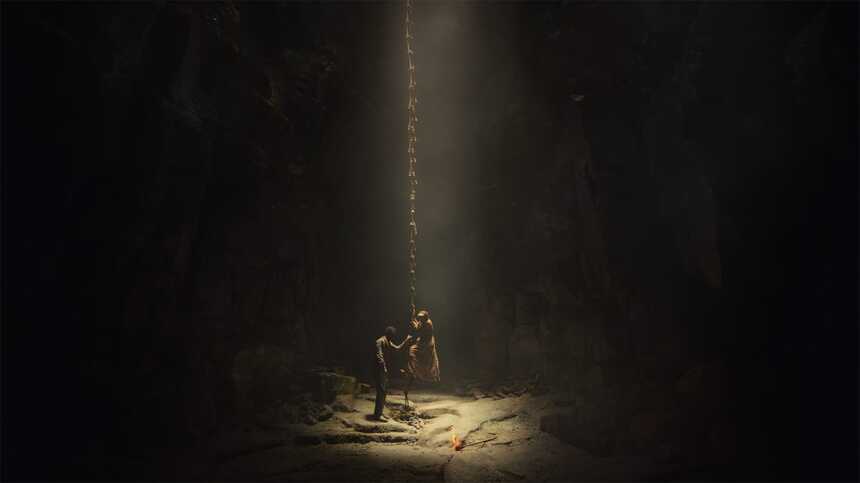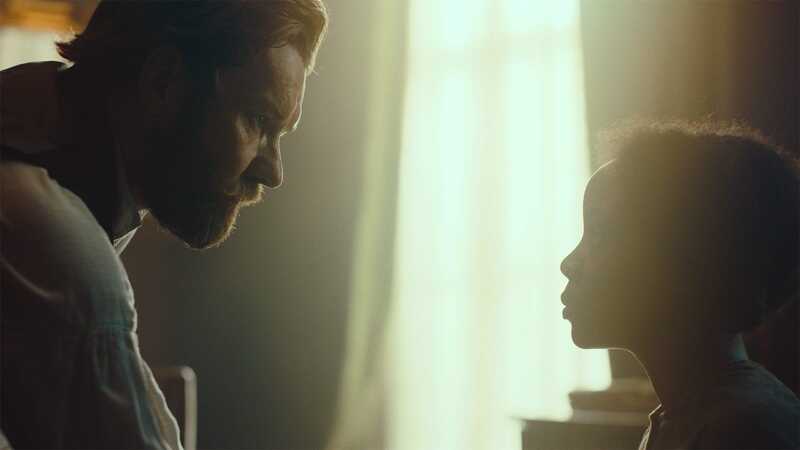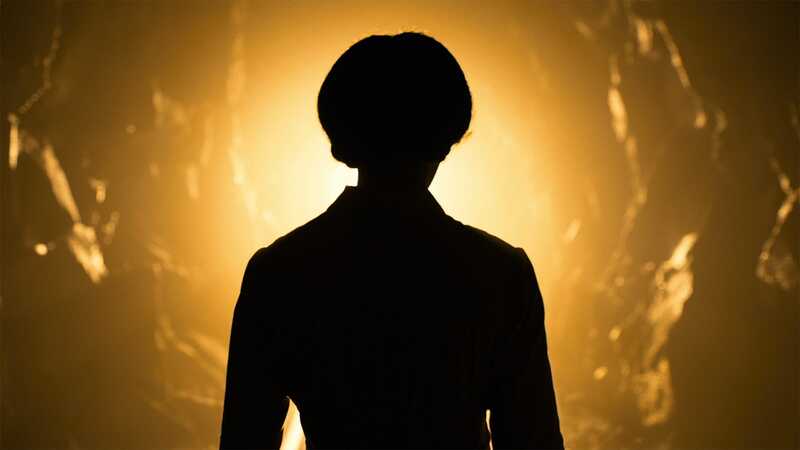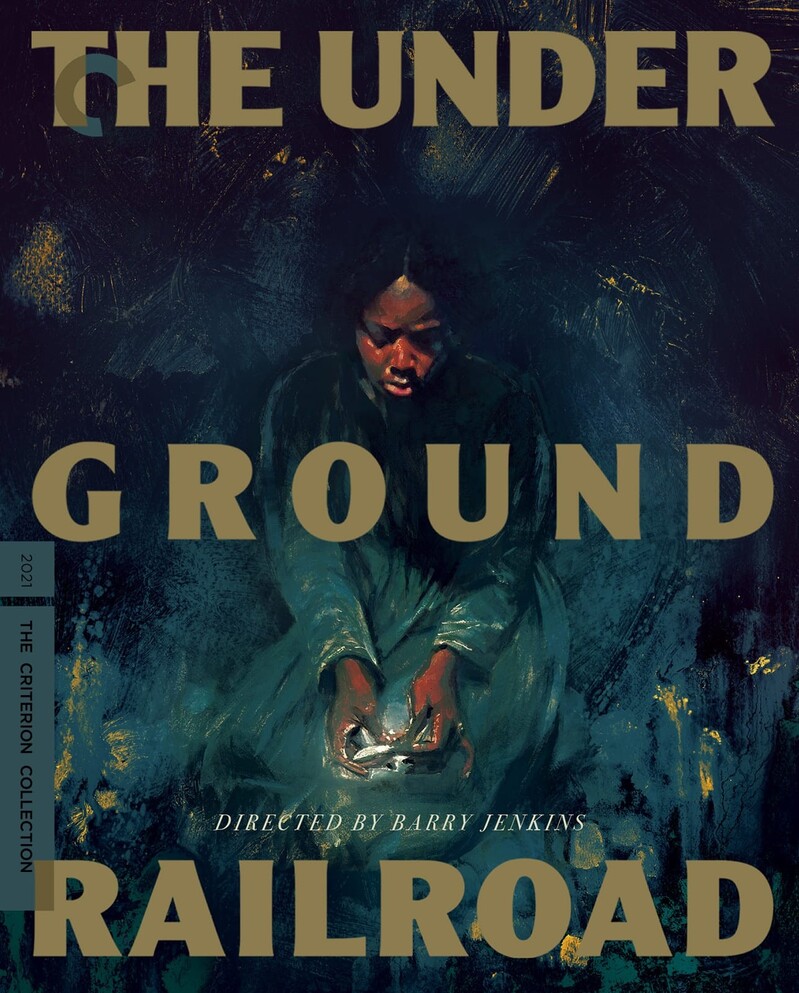THE UNDERGROUND RAILROAD Blu-Ray Review: A Monumental Story of the Personal and Historical
Barry Jenkins' fantastical epic series receives well-deserved Criterion treatment.

It's extremely rare for Criterion Collection to produce a television series; so when one does make the cut, you know it's special. And that's just the least of the adjectives that could be used to describe The Underground Railroad, Barry Jenkins's outstanding adaptation of Colson Whithead's extraordinary novel.
In this imagining, a slave makes her escape north from Georgia; only in this realization, the famed railroad is literal, extending underground from the south to the north, ferrying individuals (hopefully) free from the dangers of slave catchers and other white people. The episodes, which can be considered as stations, each showcase a different theme, the various ways that Black Americans experience (both in the past and too frequently still today) hatred, racism, discrimination, from both overtly hostile forces and those who are the sheep in wolves' clothing. But there is also joy, strength, anger, and extraordinary love.
In the final years of the antebellum South, Cora (Thuso Mbedu) was born into slavery, on a cotton plantation in Georgia. Her mother Mabel (Sheila Atim) ran away when Cora was young, and was never found. The first episode shows some of the joy these slaves manage to find in their day, with a lively evening meal, and some dancing. Cora has a hard time participating: there is always an anger in her over being deserted by her mother. Another slave, Caesar (Aaron Pierre), finds himself in a worse place now than his former Virginia - at first he refuses to 'mate' with another slave, until forced to, under the literal eye of his white master.
For these white master can come in at any time, and do whatever they want. They interrupt the part and end up whipping Cora and a young boy; when a runaway is caught and returned, he is strung up and whipped in front of everyone, and eventually burned alive. Jenkins cannot make light of how slaves were treated - he must be unflinching in showing the horrors - but it is always from the perspective of those characters. Cora and Caesar escape, though Cora ends up killing a white boy along the way. They find the railroad and make the first leg of their journey.
Their first stop is South Carolina, and it would seem to be something of a respite. Their is freedom (though limited), as a group of allegedly well-meaning white people seek a certain emancipation for the Black folk: they still treat them as barbarians, as museum pieces to be gawked at, but they are given vocation training. But they are also being subjected to medical experiments, and Cora is now being chased by the most skilled slave catcher, Ridgeway (Joel Edgerton), a man who fully embodies his profession, and whose obsession with Cora will drive him relentlessly.
Jenkins and his cinematographer James Laxton create the most beautiful images: even when what is happening on screen is brutal, there is still a richness. The faces of Cora and her fellow slaves are seen in all their beauty and nuance - so that the bruality of their treatment is made more stark on their skin and psyches. But it is always in such fullness - it's hard to quantify exactly, only that every frame is filled with such emotion, or unfailingly can evoke emotion in the audience. Each frame tells an entire story, as Jenkins make every moment count, as it would for people on the run, for whom every minute must either be treated as a blessing, or which must be used to run for safety.
From the deceptively prison of South Carolina, comes the almost literal one in North Carolina - the railroad being blocked, she is forced to trust a white man who hides her in his attic crawspace, along with another young black girl. Reaching his small town along the trail fo freedom, in which Billie Holliday's 'Strange Fruit' is made literal. In this state, any black person is killed on sight - straightforward but clear in its final act of hatred. But even this brief help is none such - it comes at a terrible price, and by the end, the entire town is in flames, the result of the anger against black people, but which will only hurt the white people. It is a metaphor perhaps obvious, but handled with subtle complexity.
This is a story of people, and the choices they make. For Cora, the choice is about how she might live, or even choosing the way she will die. She does not want to die, but she refuses to do so in slavery. Mbedu is a phenomenon in anchoring the narrative. She is often shy, frequently mades bad choices, and is full of anger; but that anger is understandable and justified, and her shyness comes from being raised in a place where her personhood was considered as nonexistent. A constant struggle, even with those she might be able to trust, to prove and understand her own worth.
This makes both a complement and a contrast to Ridgeway; with a shorter episode devoted to his background, there is no need to present him as a good person, since he clearlt is not. But perhaps knowing where he comes from: the son of a blacksmith (Peter Mullen) who detested slavery, whose son felt he never measured up, who felt the Black people his father hired were treated better. Discovering a talent for the 'hunt', he fully adopts the thinking of himself as superior - what might have begun as a convenience, a way to escape his father, becomes his religion.
Cora's journey continues through Tennessee, perhaps the bleakest part of the journey; here, the racist hatred extends to even the earth; here, the white people would burn the world, themselves included, rather than allow Black people any peaceful quarter. Cora is at her most helpless and hopeless, meeting another slave captured by Ridgeway, who knows that his only worth to the white man is his body, and so seeks to deny them that, in the most desperate and yet in its way, affirming way possible, for him.
Each episode ends with a contemporary song playing over the credits, such as Childish Gambino's 'This is America' - but through the episodes, the music of Jenkins' longtime collaborator Nicholas Britell works its magic. Full of the deepest longing, hope, reflecting on the deep beauty of the work, it doesn't just stir emotion, it is emotion, as complement and enforcement of all of Cora's love, beauty, and turmoil.
The last few episodes give Cora some respite, and her second love. Even here, though, in the alleged safety of a free Black community in Indiana, she cannot relax. For her, the devil is always breathing down her neck. Royal (William Jackson Harper) loves Cora without reservation or judgement, and gives her the space she needs to find her purpose, her steadiness, her ease. Here, the tableaus of the people, in dignity of work, community love and support, shine. And even this safety is bought from white people, and therefore never guaranteed.
Even at its most despondant, even at its darkest, Jenkins shows us the resplendance of this story, how so many suffered but also how they rose from these ashes, and how they are forced to, over and over. He and his collaborators have crafted this epic story of one girl's journey, finding truths both harsh and joyful at each station. It is a work of remarkable care; not surprising given the source text, but Jenkins has stated that he put his whole soul into this, and it shows. The brilliant heart at its centre shines.
Special Features
Given that this is a new series, made for television, it (hopefully) is already made for the small screen in quality, but having a 4K digital quality, approved by Jenkins, is special. While streaming quality can be good, disc quality is better, and in addition it has both Dolby Atmos and stereo sountrack choices. Jenkins does commentary for every episode (which is 10 hours and therefore amazing), and on some episodes is joined by cinematographer James Laxton and lead editor Joi McMillon. It's always insightful to watch an episode for a second or third time and add in the commentary for more context; it was particularly interesting for episode 4, which was the last episode shot, and Jenkins talks about having to work around the pandemic lockdown, and how they made this episode, penned by Adrienne Rush, different from the others, since it focuses on the white villain.
The set of seven teasers show how the film was marketed - what's worth remembering through them is it's not quite so much about showing clips from the show, as advancing the tone and the mood of the series, the look and the texture. The best of these is the first teaser that I remember seeing, 'Wormhole', in which small parts of scenes are shown, but in reverse and slow motion - as if to show what risk the characters take if they are caught and sent backwards. It's harrowing and unneerving in the best way. There's a great short on how the physical set of the railroad was built - in part using a museum space in Georgia, and then building the tunnels around the old trains, and the constant changes to the surroundings depending on the episode being shot.
Jenkins and his team made a medium-length film entitled The Gaze, which might be the best film 'extra' to find in the collection. Jenkins explains that they would often go to a location before shooting and test the costumes and make-up with extras, in front of the camera. In watching these, Jenkins had this idea: making a film that was just the extras, looking at the camera, along with a score written by longtime collaborator Nicholas Britell. It's mesmerizing to see these beautiful faces, full of life - most of them were just extras, though a few of the main actors appear; the other action is going on around these characters, who are posing as if for the family portrait. It's an elegy and a tribute to the people they portray.
Another wonderful addition (and collectors item) is a small comic book; this is what would have been the first episode, but budget constraints meant it could not be filmed. So instead we are gifted with a short comic/graphic chapter, written by Jenkins and Nathan C.Parker, beautifully illustrated by Valentine de Landro, adapted and colored by Eric Skillman. If you are new to the series, read it first. If not, read it maybe between episodes 1 and 2.
While the Criterion essays are always excellent, Angelia Jade Bastién's 'The Wound and the Remedy' is a cut above. Part analysis, part commentary, but put together as an amazing creative non-fiction essay that examines the film, its subjects, its characters, its production, both as pieces and a whole. Bastién has particular insight into what makes the series great: its sensorial experience, its treatment of the protagonist as a whole human being with wants and flaws, teh show's tenderness towards its Black characters, its portrayal of its white characters as human and still, to varying degrees, awful, as befits most of this history.
This is truly one of the best releases Criterion has done, well worth of inclusion and as part of any cinephile's collection.
The Underground Railroad
Cast
- Thuso Mbedu
- Chase Dillon
- Joel Edgerton










